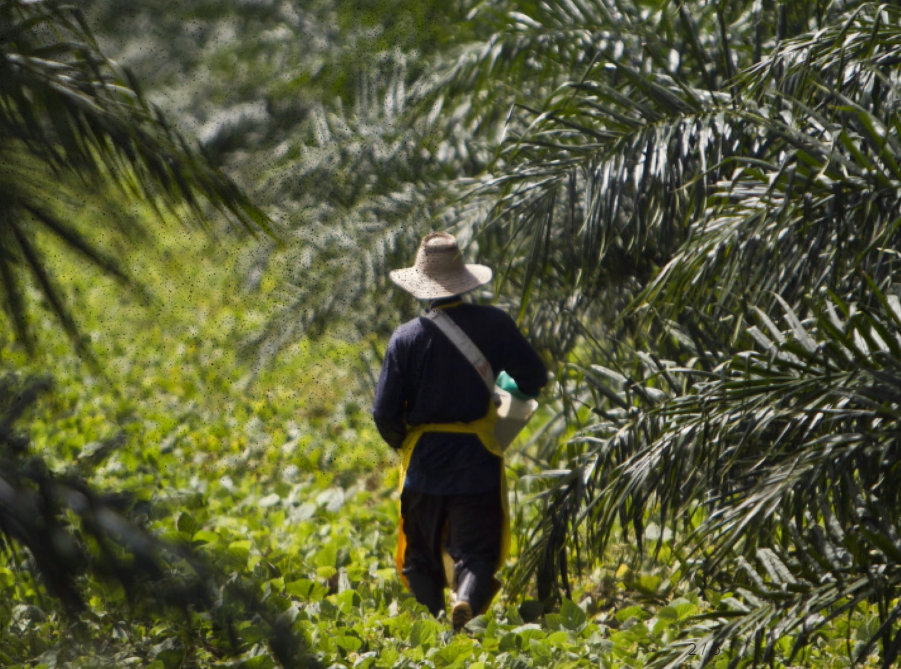This impact story was originally posted by the Tropical Forest Alliance here.
A critical shift has occurred in corporate efforts to address commodity-driven deforestation. Companies have recognised that to remove deforestation at scale, they need to collaborate with other stakeholders in production landscapes, while continuing to transform their supply chains towards sustainability.
The Consumer Goods Forum (CGF) Forest Positive Coalition of Action, a group of 21 global retailers and manufacturers, has incorporated collaboration to support progress in production landscapes in their theory of change and commitment for a forest-positive future. In 2021, facilitated by TFA and Proforest, the Coalition developed its Landscape Strategy, which presents the group’s shared ambition and approach.
Each member has committed to investing in landscape programmes driving forest conservation, ecosystem restoration, and community inclusion in the production of the Coalition’s four key commodities: palm oil; soy; pulp, paper, and fibre-based packaging; and beef. By the end of 2021, all Coalition members had invested in at least one landscape/jurisdictional initiative that meets their shared criteria in selecting initiatives to engage with.
Together, the Coalition aims to transform areas equivalent to the size of the members’ combined production-base footprint by 2030. The group starts the collective journey with an initial learning phase to build common understanding on how to build, accelerate, and monitor progress through landscape actions. This phase will run through 2023, after which engagement will be scaled up. This positive trend of companies joining forces with stakeholders beyond their supply chains will continue to grow. Other industry platforms, such as the Action for Sustainable Derivatives and Soft Commodities Forum, are looking into similar approaches. Corporate commitments to climate, nature and people, whether to be carbon-neutral, support biodiversity, or promote regenerative agriculture, build further leverage for landscape-level collaboration to achieve and sustain these outcomes at scale.
TFA Perspectives: private sector feature

Q: Why is landscape engagement essential to address commodity-driven deforestation at scale?
It’s fair to say that businesses, particularly in the food industry, have a long track record of engaging on commodity production, but traditionally it’s been within our own supply chains. That has been relatively effective, but it has also driven a somewhat siloed way of engaging in supply chains. While it has been useful in addressing individual issues or individual supply chain dynamics, what it hasn’t done – because it’s quite siloed – is to knit together various efforts to actually benefit from the cumulative effect of shared or collective investment within commodity supply chains.
Q: What are the benefits for companies to take action collectively in production landscapes, like in the CGF Forest Positive Coalition of Action?
There’s a lot of power in coming together and taking collective action. We can harness the power of shared investment, focus, and engagement. We can actually scale up the transformation that we are seeking in production landscapes, whether that’s across different environmental issues, mainstream sustainable agricultural practices, or the social issues, such as looking to redress inequalities in producing communities.
It also gives us the ability to use our shared influence to engage with local and international stakeholders, whether governments or civil society, to make sure we have a more joined-up conversation.
There’s a lot of power in coming together and taking collective action… We can actually scale up the transformation that we are seeking in production landscapes…
Q: How does being a retailer affect your strategy in engaging in production landscapes?
Retailers and manufacturers sit in different parts of the supply chains, which means that our ability (as retailers) to affect change in the upstream (part of the supply chain) is also different. Often, we don’t buy directly – unlike the manufacturers – so we don’t have those direct relationships with traders, cooperatives, and producer communities.
What we’re seeing now with landscape engagement is an opportunity for retailers, while continuing to engage with our supply chains, to leapfrog and look at ways where we can leverage direct investments in producing communities. By doing this, we not only test and learn ways to solve systemic problems, but we are also demonstrating proof of concept to our own suppliers: that there is a different way of working. This is valuable on multiple levels, but certainly something that’s quite new for retailers.
Q: Tesco is supporting the Responsible Commodities Facility (RCF) to provide cheap loans for soy farmers who commit to zero deforestation. How would this kind of supply chain action contribute to landscape-scale action?
RCF is about testing and proving that you can incentivise changes to the way that Brazilian soy farmers produce, by providing preferential lending rates to farmers based on a set of requirements. Simply put, it’s about keeping the forests standing and, where possible, restoring and regenerating degraded land.
RCF is interesting to a retailer like Tesco – we’re investing £5 million in it – because it is a model that uses the power of the market, and it can target particular production landscapes. For us, that specifically means the Cerrado (biome), because a significant proportion of the Brazilian soy that we’re using indirectly through our supply chain comes from this region.
We want to be able to play a role in positioning how the RCF is scaled within Brazil and high-risk sourcing landscapes. In the long term, one thing I’m really trying to do is to scale up this product in such a way that money made on it can be reinvested back into the supply chains, specifically through Brazilian environmental NGOs on the ground that already have (landscape) programs.
Q: What are key next steps to take to advance engagement at landscape and jurisdictional scale?
We have to be really open and transparent that this is a genuinely pre-competitive collaborative space, and that it is in our collective interest to be working in production landscapes together. We really need to make sure that we socialise and embed this new way of working and get support from producer communities, local and regional governments, and other stakeholders.
The other piece is making sure that we talk about our engagements and investments more openly, while also being really clear in how we account for any changes that we’re able to bring on the ground – the good and the bad. This is a new frontier in which food businesses invest and engage in production landscapes. We’re not going to get it right all the time; we have to acknowledge that and be able to talk about the learning, because by being more transparent we can actually help others on their journeys and start to build the critical mass that we need to drive transformational change within commodity supply chains around the world.
Action for Sustainable Derivatives (ASD)
Palm oil is essential to everyday consumer goods, from biscuits and ice cream. Its derivatives are commonly found in home and personal care products, like lipstick and detergent. While the food industry has made significant strides in tackling deforestation, companies that use palm oil derivatives are stepping up too.
Action for Sustainable Derivatives (ASD) is an industry-led platform that brings together companies in the cosmetics, home and personal care, and oleochemicals industries to collectively tackle supply chain issues around palm oil and palm kernel oil derivatives. ASD is co-managed and co-facilitated by BSR and Transitions and seeks to achieve a wholescale transformation of the complex palm derivatives sector. Now in its third year of operation, with 23+ members representing approximately one million tons of palm derivatives, the initiative is actively deploying joint actions to engage the supply chain and transform key production areas.
To drive positive impact on the ground, the platform has set up the ASD Impact Fund, in partnership with Tides Foundation. Six members of ASD – Croda International, The Estée Lauder Companies through its Charitable Foundation, GSK Consumer Healthcare, Natura &Co, Seppic and Stéarinerie Dubois – have officially begun supporting the Mosaik Initiative in Indonesia through the Fund.
Led by Inobu – an Indonesian non-profit organisation working towards sustainable landscape management – the initiative focuses on sustainably restoring the landscape and driving economic growth in two of the largest palm producing districts in Central Kalimantan, Indonesia – Seruyan and Kotawaringin Barat. Contributing ASD members source on average 8% of their palm derivatives from Central Kalimantan.
The ASD Impact Fund intends to provide €1.5 million to support the Mosaik landscape initiative over the next five years. This includes supporting the certification of more than 2200 smallholder farmers covering up to 4400 hectares of land, implementing regenerative agriculture in 650 hectares of land, and encouraging local communities to protect around 6500 hectares of natural forests in their villages.
Read more about ASD and their collective impact.
